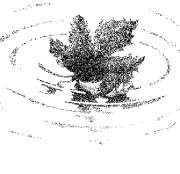"Festival's philosophy""Memory in Music" In the last few years all editions of the International Festival Autunno Musicale focused on a theme that could unite musical tradition with memory in a relationship of actuality between past and present. The principal theme of this thread which was established since 2000 is the communication between composer, performer and audience, not only by a mere musical point of view, but also for the cultural aspects in general that connect musical trends to the events and political backgrounds of all past ages. In 2001 the focus of the programme was on "Symbolism", a literary and musical movement that connects the culture of 19th century to the 20th. The audience manifested an interest in the theme and led to a more accurate analysis of musical creation with respect to the concept of Romanticism. This is the main reason that led to the conception of the 2002 programme focusing on "Sturm und Drang" an aspect of European culture that laid the grounds for the birth of the Romantic movement. The starting point was what we usually define �Enlightenment�, but also with other aspects more tightly connected to subjectivity. The ideal sequel to this edition in 2004 was the outbreak of the First World War and its influence on arts in the first Post-war period that caused major changes by a social and political point of view: the birth of Nazism, Communism and its distortions that brought to the 2nd World War. In relation to this the focus was not on the style, but on how the composer reacted in its expressional research and its relation with his audience; so, "between the two wars, longing for peace" wanted to unite and represent the kind of creativity that arose in this tragic historical period and tried to express his emotions to the audience and at the same time attempted to find in the artistic expression short moments of serenity in a very difficult historical context. This led consequently on the consideration of the following 50 years and on how to present them to the audience. In the first conception the different cultural movements of the late XX century should have been presented separately, but a new cultural need arose suddenly that led the artistic committee to postpone the mere chronological analysis. Cultural actors, audiences and artists live in a world that changes too rapidly, in a world where people live a geographically instable life and there is an always stronger trend to communicate via the new media that oblige us to use ever-changing languages. The programme�s focus is on the research of a new harmony, according to the rules of the �classics�, not escaping reality, but trying to find an alternative to the actual state of confusion and triteness. |


